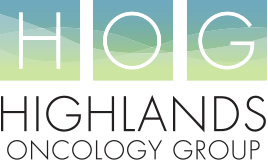Breast cancer is a kind of cancer that develops from breast cells. In healthy cells, human genes (called BRCA1 and BRCA2 genes) help ensure the stability of the cell’s genetic material (DNA) and help prevent uncontrolled cell growth. When these genes mutate, it has been linked to the development of hereditary breast and ovarian cancer.
BRCA1 stands for breast cancer susceptibility gene 1 and BRCA2 stands for breast cancer susceptibility gene 2.
A woman’s lifetime risk of developing breast and/or ovarian cancer is greatly increased if she inherits a harmful mutation in BRCA1 or BRCA2. A woman will have an increased risk of developing breast and/or ovarian cancer at an early age (before menopause) and often has multiple, close family members who have been diagnosed with these diseases.
Harmful BRCA1 mutations may also increase a woman’s risk of developing cervical, uterine, pancreatic and colon cancer. Harmful BRCA2 mutations may additionally increase the risk of pancreatic cancer, stomach, gallbladder and bile duct cancer, as well as melanoma.
For more information on BRCA1 and BRCA2 gene mutation click here to visit the National Cancer Institute’s website.



